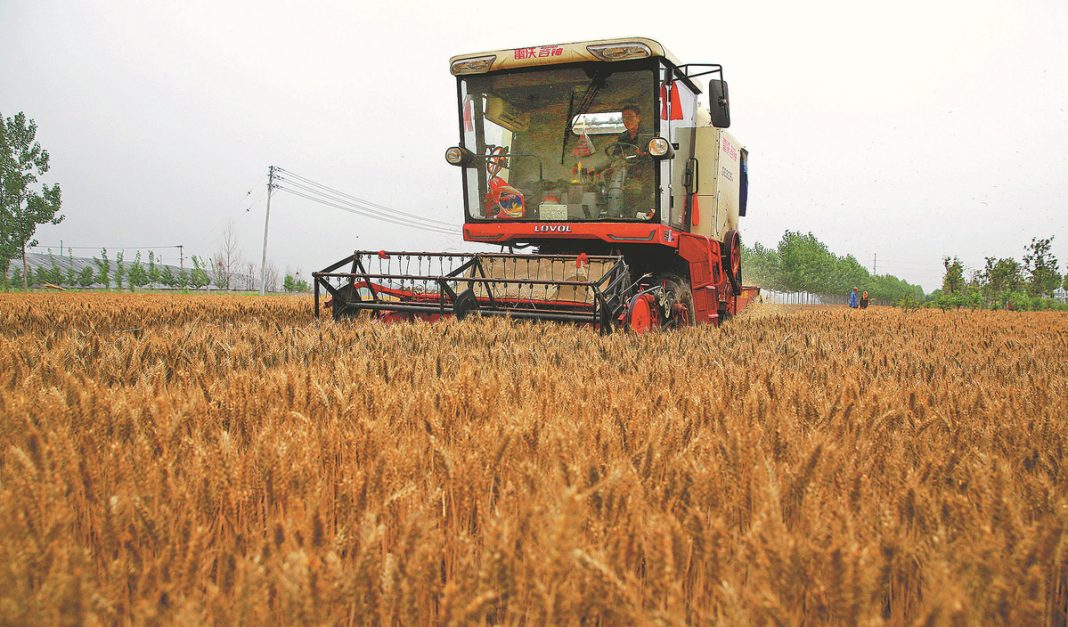URUMQI: Amid the summer grain harvest progressing in northwest China’s Xinjiang Uygur Autonomous Region, one of the country’s major grain barns, the region has set yield records for wheat in the country.
According to assessments certified by an expert panel sent by the Chinese Ministry of Agriculture and Rural Affairs, the per-mu (about 0.067 hectares) yield of winter wheat on three large fields measuring 500 mu, 1,200 mu and 10,490 mu in Xinjiang all broke national records.
A record yield of 795.8 kg per mu was achieved in a 500-mu wheat field in Huocheng County, which shares similar meteorological and soil conditions with Provence in France due to their similar latitudes.
“We chose the wheat variety ‘Shidong 0358’ for planting, adopted water-efficient irrigation techniques, and used foliar fertilizer to boost plant growth,” said You Chengyong, of the agricultural service station in Huocheng, noting that currently, Xinjiang has completed 70 percent of its summer grain harvest. “The increase in per-unit wheat yield is one aspect demonstrating the comprehensive improvement of grain production in Xinjiang,” said Tang Yiwu, an official of the regional agriculture and rural affairs department, adding the high yields previously achieved in experimental fields have now been realized across large swathes of wheat fields in the region.
Earlier, Once an underdeveloped and isolated place, Sigong village of Lucaogou town, Huocheng county, in Northwest China’s Xinjiang Uygur autonomous region, has now become a “blooming paradise” attracting millions of visitors.
Previously, the farmlands had shallow soil and were full of stones, leading to low crop production. A decade ago, locals found the typical continental semi-arid climate in the Ili River Valley, where the village is situated, perfect for lavender to flourish.
Since then, each household in the village began cultivating lavender. They also produce dried flowers, essential oils, and other products, turning lavender planting into a local industry. Now, the village has a lavender planting base covering 12,000 mu (800 hectares), making a great contribution to Huocheng county, which is recognized as one of the world’s three major lavender planting bases, along with Provence in France and Furano in Hokkaido, Japan.
Earlier, At the end of 2018, the village decided to expand its industrial chain to promote the agri-entertainment and homestay economy.
Li Zengjie, Party chief of Lucaogou town, led a team to study homestay business in different cities in the country. Besides, young entrepreneurs were also invited to invest and establish businesses in the village. –Agencies




